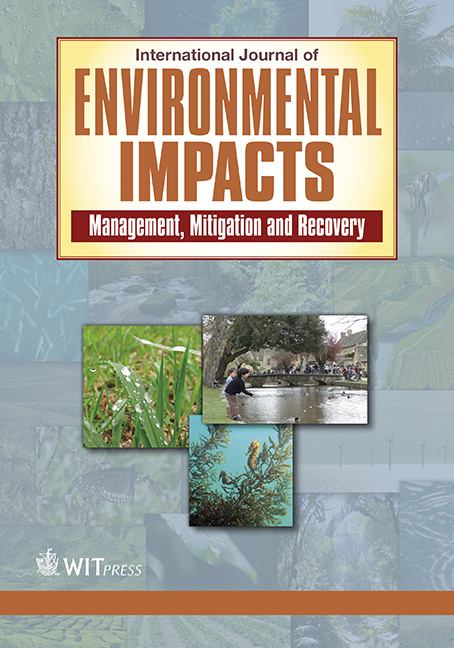Assessing downstream flood risk under changing climate for Bakun Dam in Sarawak
Price
Free (open access)
Volume
Volume 5 (2022), Issue 4
Pages
14
Page Range
316 - 330
Paper DOI
10.2495/EI-V5-N4-316-330
Copyright
WIT Press
Author(s)
Jerry Betie Chin, Husna Binti Takaijudin & Siti Habibah Binti Shafiai
Abstract
Rajang River Basin (RRB) comprise about 40% of the Sarawak State area in Malaysia. Any extreme storm event in the Upper RRB may cause a flood, affecting the downstream communities and infra- structures of the Rajang River. There are two large dams in a cascade scheme at upper RRB, Murum Dam and Bakun Dam. With the concern of changing climate impact, the future peak precipitation and peak river discharge are analysed in this study to assess the potential flood impact along the Rajang River. This study focused on developing flood modelling for downstream of Bakun Dam down to Be- laga Town. The peak rainfall analysis was carried out to generate peak discharge for the return period of 1 in 50 and 1 in 100 years of historical and projected future storm events. The corresponding flood- plains map pre- and post-Bakun Dam operations were generated using GeoHECRAS software. The study results show that the projected peak rainfall and peak discharge under future changing climate are increased between 6–27% and 7–30%, respectively, and this warrants attention from the relevant authorities and parties to access the flood risk downstream Bakun Dam continuously. The generated maps of pre- and post-Bakun Dam operation show that Bakun Dam can mitigate the flood from impacting the downstream structures and communities. The outcome from this study can be useful information to educate the local people and public about the benefit of having a Dam, not only for the source of power generation but also for flood mitigation.
Keywords
Bakun Dam, climate change impact, flood mapping, GeoHECRAS, peak flood discharge, peak rainfall, rainfall frequency analysis, Rajang River Basin, reservoir flood routing, RORB.




